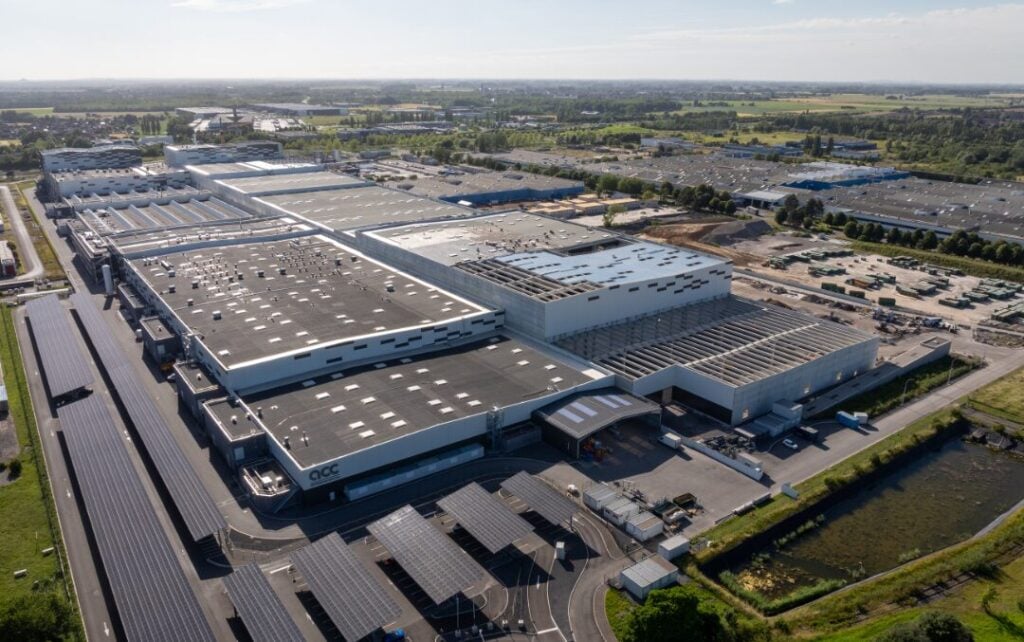
We hear from sources about the state of health of Europe’s battery ecosystem, and how current industry incumbents are hoping to learn from the mistakes of their predecessors.
Energy-Storage.news has covered the European battery and battery energy storage system (BESS) manufacturing space regularly over the past few years, a period in which the industry has struggled to take off following a period of high investment and optimism in 2019-2022.
As we reported in March, the new generation of hopefuls like the UK’s Volklec and Norway’s Elinor Batteries are hoping to learn from the mistakes of past incumbents like Northvolt by partnering with Chinese companies from the outset and scaling at a much slower pace.
The European market has faced three major challenges. High energy prices from the 2021-22 gas price-driven crisis which have failed to come down, a lack of technical expertise in the battery space and consistently falling prices from China.
Try Premium for just $1
- Full premium access for the first month at only $1
- Converts to an annual rate after 30 days unless cancelled
- Cancel anytime during the trial period
Premium Benefits
- Expert industry analysis and interviews
- Digital access to PV Tech Power journal
- Exclusive event discounts
Or get the full Premium subscription right away
Or continue reading this article for free
Even free land and energy might not be enough
A panel discussion put on by Solar Media at ees Europe earlier this month discussed the future of Europe’s PV and battery manufacturing industries. From the battery side, Elinor Batteries’ executive VP business development Sofi Hildonen and Nemanja Mikac, CEO of Serbia-based LFP gigafactory ElevenEs gave their views.
Hildonen said that being humble and partnering with an experienced player from the outset, as it has done with China-based Morlus Technology, was key to succeeding where its predecessors did not.
Mikac meanwhile took the opportunity to share his views on the Northvolt saga, for which you can also watch the video below.
“It’s one of the most critical questions and one the investor world doesn’t understand that deeply. If the energy was free, and the site was free, if you have more than 50% scrap, it doesn’t matter. You will fail anyway,” Mikac said.
“You make a second mistake of scaling up too quickly, then you’re making 50% scrap on billions. So what happens is you lose hundreds of millions per month, and you don’t have enough time to raise from the dead, as no one will give you 10 billion more. They got too much money too fast. It wasn’t the only issue, and I’m not blaming anyone specifically.”
“But there were sparks of this a few years ago. Sometimes the scrap was over 50%, which isn’t sustainable. They should have scaled down, preserved money, and learned it on a lower scale. They might have been two or three years later to market, but they would have a company and a product today.”
“Investors are now super scared and this is the first step: stay humble and do it step by step. Then you do it on a large scale, and then the investor confidence will come back.”
‘Not easy to reach industrial scale’
We also discussed the topic in an interview with ESN Premium, with Franck Girard, président of the French arm of system integrator Nidec ASI, one of the few that manufactures BESS in Europe. He pointed out that Chinese companies are setting up all over Europe amidst struggles for the European ones.
“We see the problem of Northvolt, we see ACC suffering, it’s not easy to reach industrial scale,” Girard said.
“Verkor is coming but with NMC that isn’t really valid for energy storage. We see the Chinese opening new gigafactories, Sunwoda in Hungary, CATL in Hungary, CALB in Portugal, AESC in Spain, LG in Poland.”
Automotive Cells Company (ACC), which has three gigafactory projects in, is co-owned by automotive groups Stellantis and Mercedes-Benz, and energy major TotalEnergies, through its battery subsidiary Saft. Having such large backing and dedicated offtakers potentially makes scaling up easier than an independent like Northvolt, ElevenEs, Elinor or Volklec, but it is far from without its challenges too. In late 2024 the company announced a halt on construction on its Italy and Germany projects.
ACC on LinkedIn said in March, in response to the EU’s €100 billion (US$113 billion) Clean Industrial Deal plan: “To survive and successfully ramp up our gigafactory – a process that is proving longer and more expensive than expected – immediate support is essential. We are therefore calling for the activation of the Innovation Fund 2024 without waiting for 2025 or 2026, or even 2027.”
‘Not doing enough to get projects over the line’
Bloombergnef’s (bnef) latest Global Lithium-Ion Battery Supply Chain Ranking report had most European countries have fallen down the ranking for 2024, with China ranked first and the US and Canada tied for second.
An industry analyst told us that policy support has often lacked when it really mattered, particularly around more upstream projects like mining and raw material processing which, while not essential for a thriving battery industry, do help.
“Governments need to support de-risking of these projects. Some battery projects that were designated as Projects of Common Interest (PCIs) attracted investment but that scheme has not been used in raw materials or been maintained in manufacturing as much. Europe’s policymakers often want to be trailblazers of new technologies but don’t tend to do enough to take them over the line,” they said.
